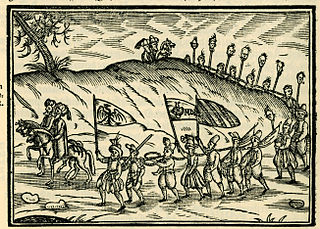 W
WAbu Bakr Ibn Abi Zaid as-Slawi was the pasha, or qaid, of Casablanca, Morocco and the representative of the Makhzen in the city at the time of the French bombardment and invasion of the city August 5-7, 1907.
 W
WDevshirme was the Ottoman Empire practice of forcibly recruiting soldiers and bureaucrats from among the children of their Balkan Christian subjects. The mention of it first appears in written records in 1438, but probably started earlier. It created a faction of soldiers and officials loyal to the Sultan, which counter-acted the power of the Turkish nobility who sometimes opposed the Sultan. The system produced all of the grand viziers, the second most powerful man in the Ottoman empire, from the 1400s to the 1600s. It also produced most of the Ottoman empire's provincial governors, military commanders and divans during that period.
 W
WA külliye is a complex of buildings associated with Turkish architecture centered on a mosque and managed within a single institution, often based on a waqf and composed of a madrasa, a Dar al-Shifa ("clinic"), kitchens, bakery, Turkish bath, other buildings for various charitable services for the community and further annexes. The term is derived from the Arabic word kull "all".
 W
WThe language of the court and government of the Ottoman Empire was Ottoman Turkish, but many other languages were in contemporary use in parts of the empire. Although the minorities of the Ottoman Empire were free to use their language amongst themselves, if they needed to communicate with the government they had to use Ottoman Turkish.
 W
WAn odalisque was a chambermaid or a female attendant in a Turkish seraglio, particularly the court ladies in the household of the Ottoman sultan.
 W
WSürgün or verb form sürmek was a practice within the Ottoman Empire that entailed the movement of a large group of people from one region to another, often a form of forced migration imposed by state policy or international authority. The practice was also a form of banishment or exile often applied to the elites of Ottoman society, the Pashas. It was most famously used as a method of ethnic cleansing in the Armenian Genocide perpetrated by the Young Turk government in 1915, in order to deal with a perceived threat from Armenian nationals receiving military support from the, Ottoman hostile, Russian Empire.
 W
WSlavery in the Ottoman Empire was a legal and significant part of the Ottoman Empire's economy and traditional society. The main sources of slaves were wars and politically organized enslavement expeditions in North and East Africa, Eastern Europe, the Balkans, and the Caucasus. It has been reported that the selling price of slaves decreased after large military operations. In Constantinople, the administrative and political center of the Ottoman Empire, about a fifth of the 16th- and 17th-century population consisted of slaves. Customs statistics of these centuries suggest that Istanbul's additional slave imports from the Black Sea may have totaled around 2.5 million from 1453 to 1700.
 W
WThe Yishuv or Ha-Yishuv or Ha-Yishuv Ha-Ivri is the body of Jewish residents in the land of Israel prior to the establishment of the State of Israel in 1948. The term came into use in the 1880s, when there were about 25,000 Jews living across the Land of Israel, then comprising the southern part of Ottoman Syria, and continued to be used until 1948, by which time there were some 630,000 Jews there. The term is used in Hebrew even nowadays to denote the pre-1948 Jewish residents in the Land of Israel.